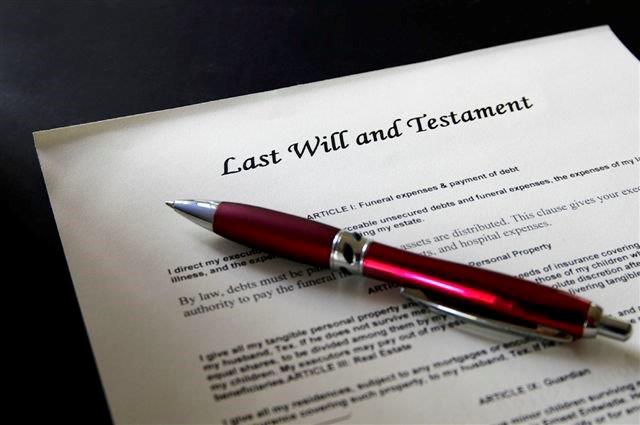What happens if you are the executor of a will that is contested?

When a loved one dies, it is the executors’ responsibility to administer the estate. If the deceased has left a will, the estate is distributed in accordance with its instructions. If there is no will, the law decides who will inherit under the rules of intestacy. However, it’s not always straightforward. Occasionally, someone may believe they have an inheritance claim despite having been left out of a will. This can be particularly complicated if the will is contested once all the assets have already been distributed.
Who can contest a will?
A person cannot contest a will simply because they don’t like its contents, they have to have had a particular type of relationship with the testator. As well as family members, this could include anyone who was treated as a family member, lived with and was financially dependent on the deceased; or could be someone who was mentioned in a previous will and claims the later will is not valid.
Some testators do not make provision for children from previous or secret relationships, and, in some cases, their second family has no idea they have half siblings. Any child can make a claim against the estate under the Inheritance (Provision for Family & Dependants) Act 1975, if they believe they have not been left with reasonable financial provision. Similarly, any partners, including divorced spouses, may also be entitled to make a claim, depending on the circumstances.
While these claims may not succeed, or only succeed in part, they can lead to protracted litigation, which the executors would have to defend on behalf of the estate. At this stage, it is essential to seek legal advice to bring any litigation to an early conclusion before it depletes the assets. Making the wrong decisions on behalf of the estate could mean the executors end up personally liable for the beneficiaries being left out of pocket.
What does this mean for executors?
The executors should not distribute the estate until they can be sure there is nobody who might make a claim. Claims can be issued in court up to six months after the Grant of Probate is issued, but the papers do not have to be served until four months later. Consequently, it would be prudent for the executors to wait 10 months from the date of the Grant before paying out funds to beneficiaries.
This is not always necessary – if, for example, the executors are the main beneficiaries, they may be happy to pay out to themselves and deal with any claims between them if they arise. If the executors are not beneficiaries, or only due a nominal sum in the will, they will be left with the difficult task of trying to recover the money from the beneficiaries if there are any claims – and if they are unable to, they may have to pay the claim themselves.
In one example, a brother and sister were appointed executors in their father’s will. He left lump sums for his grandchildren, who were under 18 at the time. The sister agreed that her brother could take the money for his children to invest for them until they reached 18. Sadly, he had been estranged from his children for some years. When his daughter reached 18, she asked for her money, only to find that he had spent it. She had the right to seek repayment from both executors, even though only one of them had spent her share of the money.
It is important to remember, if you are appointed as an executor, your responsibilities do not end once you have finished administering the estate. If you, or a fellow executor, make a mistake, miss deadlines or debts, you could still be liable to reimburse the beneficiaries even years later.
The information contained in this article is intended for general guidance only. It provides useful information but it is not a substitute for obtaining legal advice as the articles do not take into account specific circumstances. So do please Contact Us for legal advice on the issues raised.
Resources
7 Dangers Executors Need to Know










